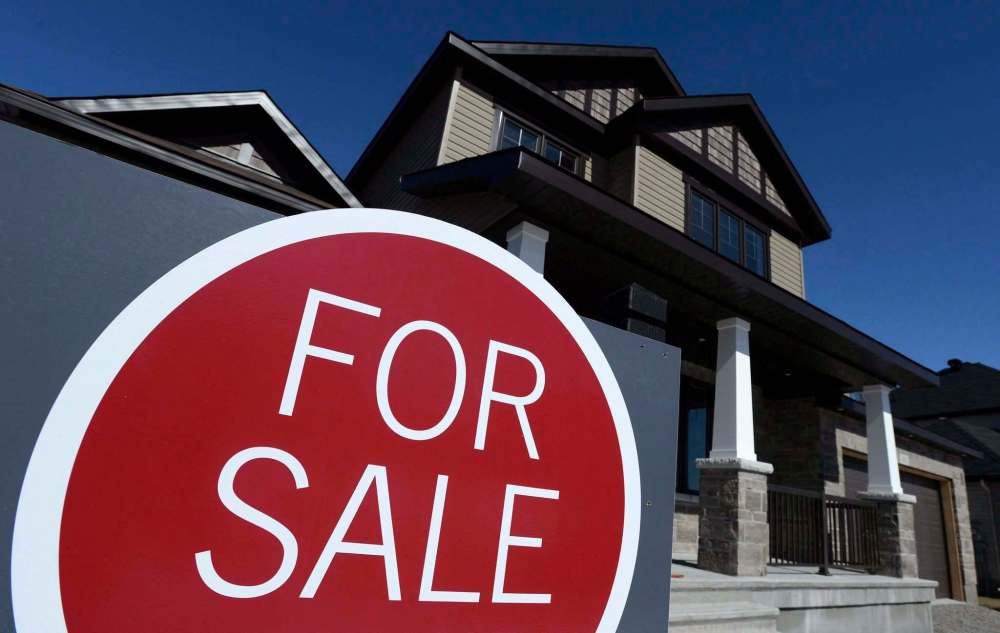Shaking up city’s housing market
Mortgage changes, increasing interest rates and new growth fee to influence buyers
Advertisement
Read this article for free:
or
Already have an account? Log in here »
To continue reading, please subscribe:
Monthly Digital Subscription
$1 per week for 24 weeks*
- Enjoy unlimited reading on winnipegfreepress.com
- Read the E-Edition, our digital replica newspaper
- Access News Break, our award-winning app
- Play interactive puzzles
*Billed as $4 plus GST every four weeks. Offer only available to new and qualified returning subscribers. Cancel any time.
Read unlimited articles for free today:
or
Already have an account? Log in here »
Hey there, time traveller!
This article was published 09/01/2017 (2945 days ago), so information in it may no longer be current.
Several new developments late last year have muddied the waters for Winnipeg’s real estate industry in 2017.
A combination of new federal mortgage rules, the prospect of further increases in longer-term mortgage rates and the new city growth fee on new homes built in designated suburban areas could have a negative effect on the residential side of the market.
An industry official said the city’s commercial real estate sector could also be affected by a rise in interest rates and by the city’s new growth fee.

So with that in mind, industry officials were recently asked for their views on how big of an effect these factors could have on the local market in 2017. Here’s what they had to say:
New mortgage rules
The federal government introduced rule changes in mid-October in a bid to stabilize the national housing market in the face of soaring prices in red-hot markets such as Toronto and Vancouver. They included a new rule that requires all insured mortgages to undergo a stress test to determine whether the borrowers would still be able to make their mortgage payments if interest rates rise or their income declines. Previously, stress tests weren’t required for fixed-rate mortgages longer than five years.
Industry officials have predicted the more stringent stress test will force some first-time buyers to delay their purchase until they have a bigger down payment or to buy a less expensive home — a condominium or townhouse, for example, instead of a detached home.
Peter Squire, residential market analyst for the Winnipeg Realtors Association, said officials will likely have to wait until the busy spring market to get a clear picture of its impact.
“It’s a matter of where some first-time buyers see themselves sitting. Are they prepared to sit out another year and build up more savings in order to get something they had their heart set on, or are they prepared to make some adjustments in terms of that house they want to buy?” Squire said.
Manitoba Home Builders Association president Mike Moore said the new stress test for mortgages is expected to also hurt new-home sales and housing starts in Winnipeg this year. He said the association estimates seven per cent of all prospective buyers who would have qualified for an insured mortgage under the old rules won’t qualify under the new rules.
Squire said two things working in Winnipeg’s favour are houses are generally more affordable here than in most major Canadian cities and there’s an abundant supply of available condominiums in different price ranges.
“I think that’s going to be our saving grace in 2017,” he added.
“We aren’t going to be impacted as much by the higher stress-test qualifications (as higher-priced cities).”
Rising interest rates
Although the Bank of Canada isn’t expected to boost its rate in the near future, rates in the bond markets, where banks and other lenders get their mortgage money, have been climbing in recent months. That has driven up the cost for lenders, prompting them to raise the rates they charge on longer-term mortgages.
Moore and Squire said any increase in mortgage rates will have an effect on affordability, especially for more vulnerable first-time buyers. But as with the new mortgage rules, the impact here shouldn’t be as great as in the higher-priced cities, they added.

“If there were to be a slight increase in rates, I believe that the impact would be much greater in provinces such as Ontario, Alberta and British Columbia than in Manitoba,” Moore said.
“Those provinces see higher housing costs and higher debt-to-income ratios than we have here. We are a little more cautious in Manitoba, with lower debt, greater home ownership ratios, lower default rates and higher down payments.”
Trevor Clay, incoming chairman of the commercial division of the Winnipeg Realtors Association, said rising interest rates may drive down the value of investment properties because property values are based on the return on investment.
If rising interests rates drive up buyers’ mortgage costs, that’s going to reduce the return on their investment, so they likely won’t want to pay as much for the property.
Even if mortgage costs rise, Clay said it shouldn’t have a big impact on the number of transactions because most investors are well-capitalized and have plenty of equity in their portfolios. They’ll be able to buy; they just may not be willing to pay as much as they would if interest rates hadn’t increased.
Impact fee
The impact fee, which is scheduled to take effect May 1, is designed to raise revenue to offset the costs the city incurs when it has to build new infrastructure — such as regional roads, sewers, transit and recreation and leisure facilities — for new subdivisions.
The fee will add $54.73 per square metre ($5,084.42 per 1,000 square feet) to the cost of a new home in designated areas. That’s an extra $9,000 for an 1,800-sq.-ft. home..
Local developers are strongly opposed to the new fee and have vowed to file a lawsuit challenging the city’s authority to impose it. Moore said if developers lose their court case, new-home sales and building permit activity will drop in Winnipeg.
He predicted there will be a flurry of permit activity in the first four months of the year as builders and buyers scramble to file permit applications before May 1.
Once the fee kicks in, permit activity will plummet, he said.
“Even though the first four months should be very busy in terms of permit applications, there is no way that four months can carry the ensuing eight months. Therefore, new-home permit applications should fall at least 20 per cent” in 2017.

Moore suggested new-home sales could begin to decline as early as late February or early March. He said if a sale is not completed by then, it will be difficult for builders or clients to get the drawings, stamps and other material ready in time to submit a building-permit application before May 1.
“There may be only two months of solid new-home sales opportunities in the designated new subdivisions,” he said. “In this case, I would see new home sales dropping by 30 to 35 per cent.”
Squire said the fee on new homes could cause some prospective move-up buyers to buy another resale home instead, or to just stay in their existing one. If they decide to buy another resale home, that will increase sales of existing homes. If they decide to stay put, that could result in fewer new listings coming onto the market, he added.
Others may decide to buy a new home outside Winnipeg, where the fee won’t apply, he said.
“That’s where it’s going to be interesting” to see what happens.
Clay predicted the growth fee will discourage new multi-family developments in the city, which could drive down the value of vacant land. If developers decide to build and can’t get a deal on land, they’ll likely charge more for apartments or condos in order to recoup the money spent on the growth fee.
“That money is going to have to come from somewhere,” he said.
murray.mcneill@freepress.mb.ca


